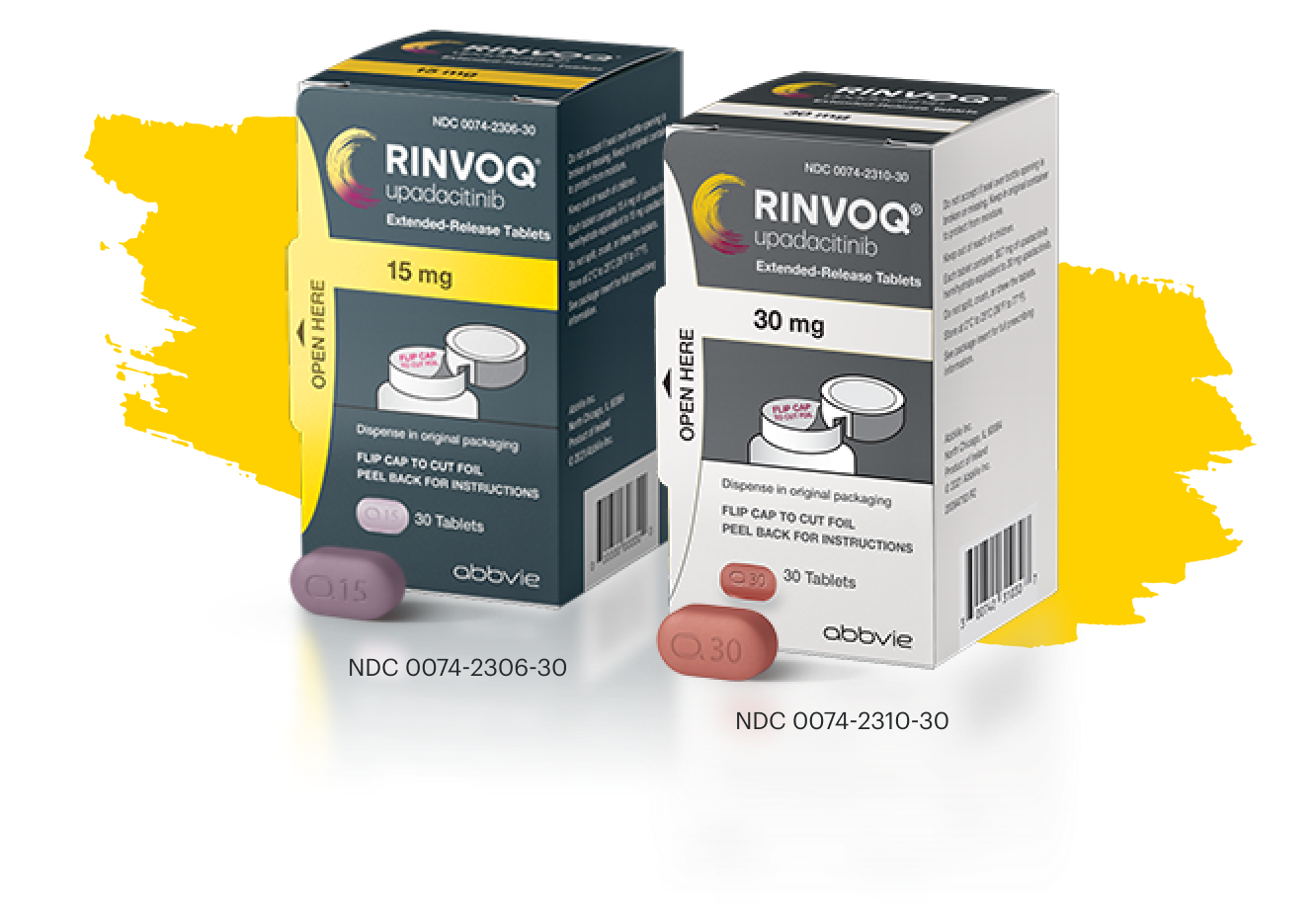RINVOQ vs
DUPIXENT® (dupilumab)
HEAD-TO-HEAD
Explore head-to-head data of RINVOQ vs DUPIXENT
US-MULT-240253
WARNING: Serious Infections, Mortality, Malignancies, Major Adverse Cardiovascular Events, and Thrombosis
Helen, real RINVOQ patient
INDICATION
RINVOQ is indicated for the treatment of adults and pediatric patients 12 years of age and older with refractory, moderate to severe atopic dermatitis whose disease is not adequately controlled with other systemic drug products, including biologics, or when use of those therapies are inadvisable.
Limitations of Use: RINVOQ is not recommended for use in combination with other JAK inhibitors, biologic immunomodulators, or with other immunosuppressants.
Please see Important Safety Information, including BOXED WARNING on Serious Infections, Mortality, Malignancies, Major Adverse Cardiovascular Events, and Thrombosis, below.

RINVOQ is an oral, once-daily therapy.1
For adults <65 years and pediatric patients 12+ years weighing at least 40 kg (88 lb), initiate treatment with RINVOQ 15 mg once daily in pediatric patients (≥12 years, ≥40 kg) and adults <65 years of age. If an adequate response is not achieved, consider increasing the dosage to 30 mg once daily. Discontinue RINVOQ if an adequate response is not achieved with the 30 mg dose. Use the lowest effective dose needed to maintain response. For patients ≥65 years, patients receiving strong CYP3A4 inhibitors, and patients with severe renal impairment, the recommended dose of RINVOQ is 15 mg once daily. Coadministration of RINVOQ with strong CYP3A4 inducers is not recommended.1

RINVOQ Complete
to help patients start and stay
on track with their prescribed
treatment plan
RINVOQ is indicated for the treatment of adults and pediatric patients 12 years of age and older with refractory, moderate to severe atopic dermatitis whose disease is not adequately controlled with other systemic drug products, including biologics, or when use of those therapies are inadvisable.
Limitations of Use: RINVOQ is not recommended for use in combination with other JAK inhibitors, biologic immunomodulators, or with other immunosuppressants.
REFERENCES:
RINVOQ vs
DUPIXENT® (dupilumab)
HEAD-TO-HEAD
Explore head-to-head data of RINVOQ vs DUPIXENT
